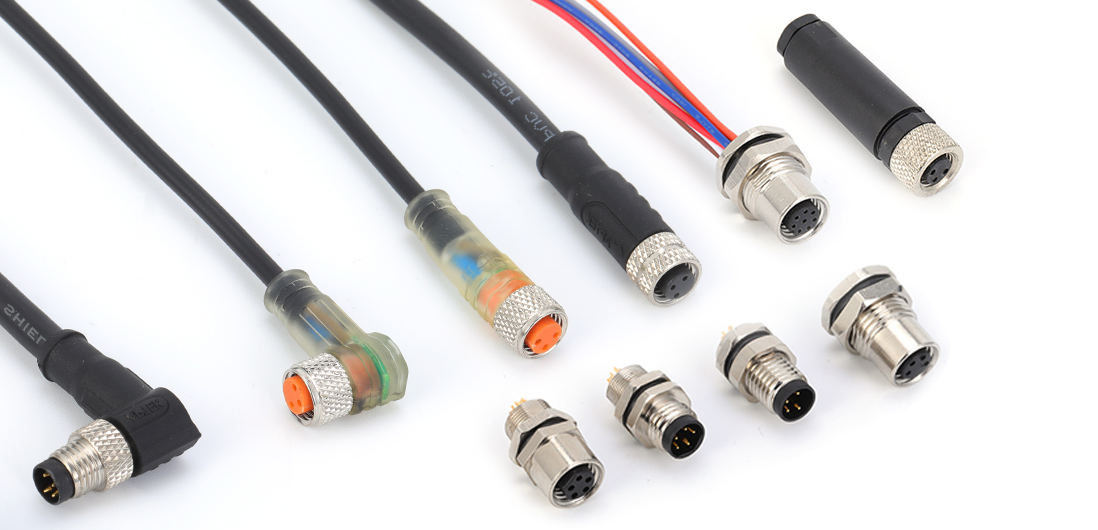You can have a 10/10 circular connector, but do you really believe in one-size-fits-all? Sure, that is what your circular connectors manufacturer tells you, but well, we don’t believe that! Nor should you.
When choosing a circular connector, there’s no one product you can rely on, and you need to look for what makes your application tick. Here’s a list of 3 key considerations you should look for before selecting a circular connector for your application.

1. Size Of Your Circular Connector
First things first, you want to see if the size of the circular connector matches your application. The rule is simple: larger size circular connectors are for larger contacts, and smaller sizes are for more minor contacts. But here’s why it is important for you to keep in mind the size of your circular connector:
● Space Limitations:
If your application space is small, why would you need a huge connector? The size of your circular connector must fit within the available space, and it must not interfere with other components.
If the size is so big that it interrupts the overall design of the system, it’s time to switch. The M12 Female Field Installable is a good option for small space applications.
● Portability And Mobility:
If your area of application is something that requires mobility, such as handheld devices or portable electronics, you need a smaller connector. This will help you minimize the weight and make transportation easier.
● Compatibility With Existing Infrastructure:
You can use a small circular connector all you want, but if it doesn’t fit well with your existing infrastructure, it isn’t useful. Because it will not be able to power your electrical device, transmit data, or transmit signals. So, choosing an optimal-sized circular connector is crucial.
2. Material Of Your Circular Connector
Many of the circular connectors manufacturers you see online are masking cheap material connectors for good ones and selling them for high prices. Don’t fall for such scams, and choose the material of your connectors wisely. Here is a list of different kinds of circular connector materials available for you to choose from:
● Simple Plastics:
If you want lightweight construction and cost-effectiveness side by side, simple plastics should be your go-to material. Thermoplastics like polyamide (nylon), polycarbonate, polyethylene, and PBT (polybutylene terephthalate) are a few of the most commonly used materials.
①. Pros:
● Lightweight
● Cost-effective
②. Cons:
● Vulnerable to high temperature
● Metal Alloys:
Most circular connectors are made of metal alloys like aluminum, brass, stainless steel, etc. This is because of their durability, strength, and corrosion resistance properties, making them suitable for harsh environments. The M8 Circular Female Connector from APTEK is made with metal alloys; check it out here.
①. Pros:
● Excellent conductivity
● Good mechanical strength
②. Cons:
● Higher cost
● Composite Materials:
Want enhanced strength, stiffness, and resistance to heat and chemicals? Ask your circular connectors manufacturer to give you one made of composite material. Composite materials are made after combining two or more materials to achieve specific properties better than plastics and metal alloys.
①. Pros:
● Tailorable properties
● Good resistance to corrosion
②. Cons:
● Limited availability
3. Environmental Factors Of Use
There are many reasons why you should ask your circular connectors manufacturer to help you find the best connector for your environment. Here are a few reasons why:
● Reliability And Performance:
It is possible that your area of application has a high temperature, high humidity, or any kind of mechanical stress. This is why you need a specific connector that is made to last all these environmental challenges and help you go on with uninterrupted operation.
● Safety And Compliance:
The industry you’re working in has a different set of rules and regulations that must be followed. So, the circular connector you choose must meet the industry-specific safety standards. If not met, you are putting your and many other lives at risk, which is not something you would like to do.
● Protection Of Equipment And Components:
If your application environment is hostile, it has dust, high temperatures, humidity, etc. Not having an optimized connector will put you under mental strain. There can be frequent damages and breakdowns that can reduce the overall lifespan of your equipment. Your connector should be capable of securing your equipment and its components to work in the long run.
● Cost Saving And Easy Maintenance:
If your circular connector is not made specifically for your environment, it will exhaust often and increase the need for maintenance. Frequent repairs and replacements can lead to increased downtime and operational costs. This can be avoided by choosing a circular connector that is made to withstand your environmental conditions.
Here’s The Catch
Before you jump on the hunt for your connectors, you need to know what you need and what your application needs. If you still haven’t found the circular connector of your dreams, check out APTEK.
They have what you need, i.e., quality and efficiency. APTEK’s circular connectors manufacturer also provides you with custom-made products tailored specifically for your application. Check them out, and get the best of engineering expertise.
Copyright © 2025 Zhongshan Aptek Electronics Technology Co.,Ltd. | All Rights Reserved
Hello, please leave your name and email here before chat online so that we won't miss your message and contact you smoothly.